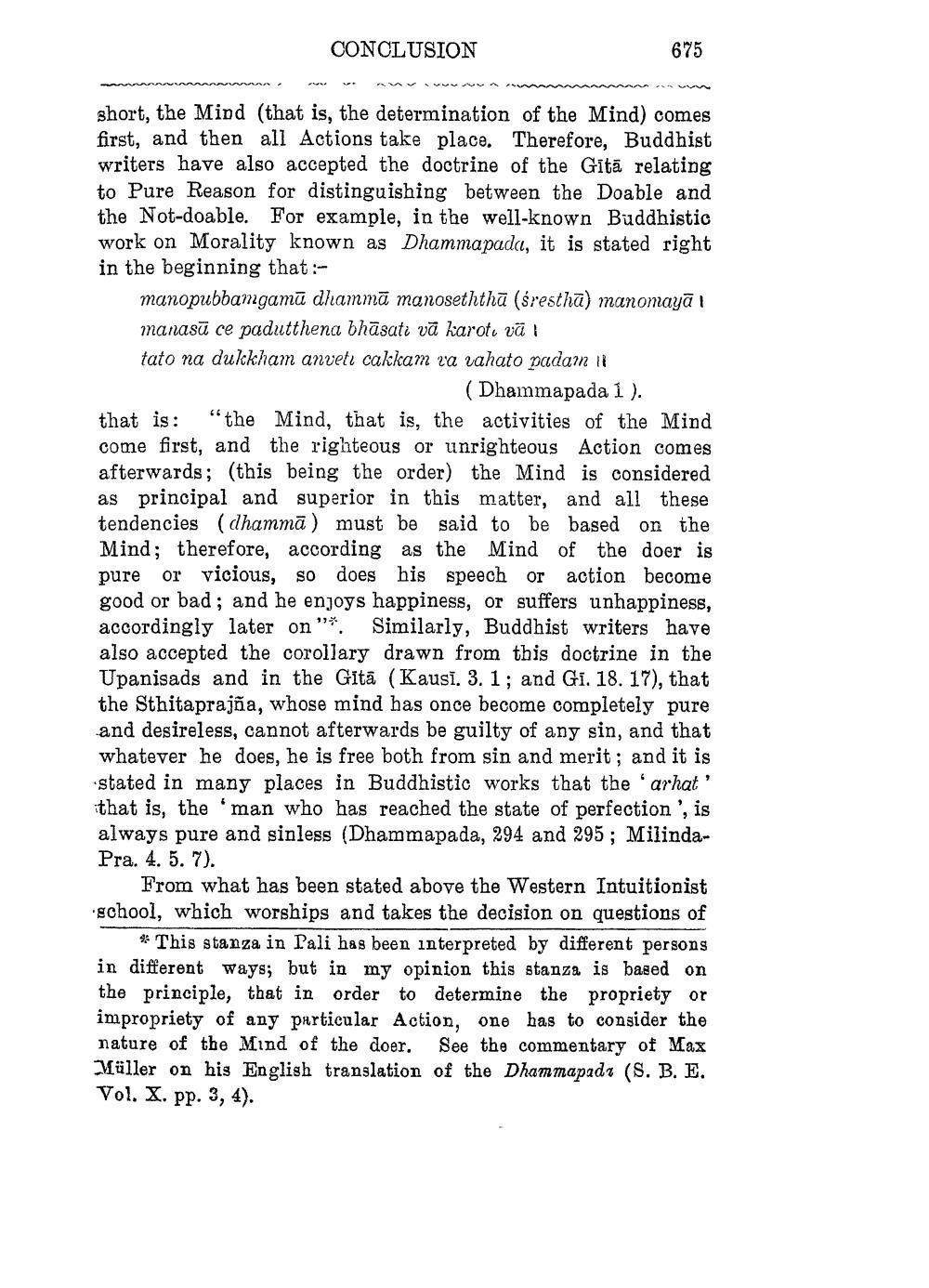________________
CONCLUSION
675
short, the Mind (that is, the determination of the Mind) comes first, and then all Actions take place. Therefore, Buddhist writers have also accepted the doctrine of the Gitā relating to Pure Reason for distinguishing between the Doable and the Not-doable. For example, in the well-known Buddhistic work on Morality known as Dhammapada, it is stated right in the beginning that:
manopubbamgamā dhammā manoseththū (srestha) manomayā ! manasū ce padutthena bhāsati vā karot, vai tato na dukkham anveti cakkam va vahato padam it
(Dhammapada i ). that is: “the Mind, that is, the activities of the Mind come first, and the righteous or unrighteous Action comes afterwards; (this being the order) the Mind is considered as principal and superior in this matter, and all these tendencies (dhammā) must be said to be based on the Mind; therefore, according as the Mind of the doer is pure or vicious, so does his speech or action become good or bad; and he enjoys happiness, or suffers unhappiness, accordingly later on "*. Similarly, Buddhist writers have also accepted the corollary drawn from this doctrine in the Upanisads and in the Gitā (Kausi. 3. 1; and Gi. 18. 17), that the Sthitaprajña, whose mind has once become completely pure and desireless, cannot afterwards be guilty of any sin, and that whatever he does, he is free both from sin and merit; and it is stated in many places in Buddhistic works that the 'arhat' that is, the man who has reached the state of perfection', is always pure and sinless (Dhammapada, 294 and 295; MilindaPra. 4. 5. 7).
From what has been stated above the Western Intuitionist 'school, which worships and takes the decision on questions of
* This stanza in Pali has been interpreted by different persons in different ways; but in my opinion this stanza is based on the principle, that in order to determine the propriety or impropriety of any particular Action, one has to consider the nature of the Mind of the doer. See the commentary of Max Müller on his English translation of the Dhammapadı (S. B. E. Vol. X. pp. 3, 4).




